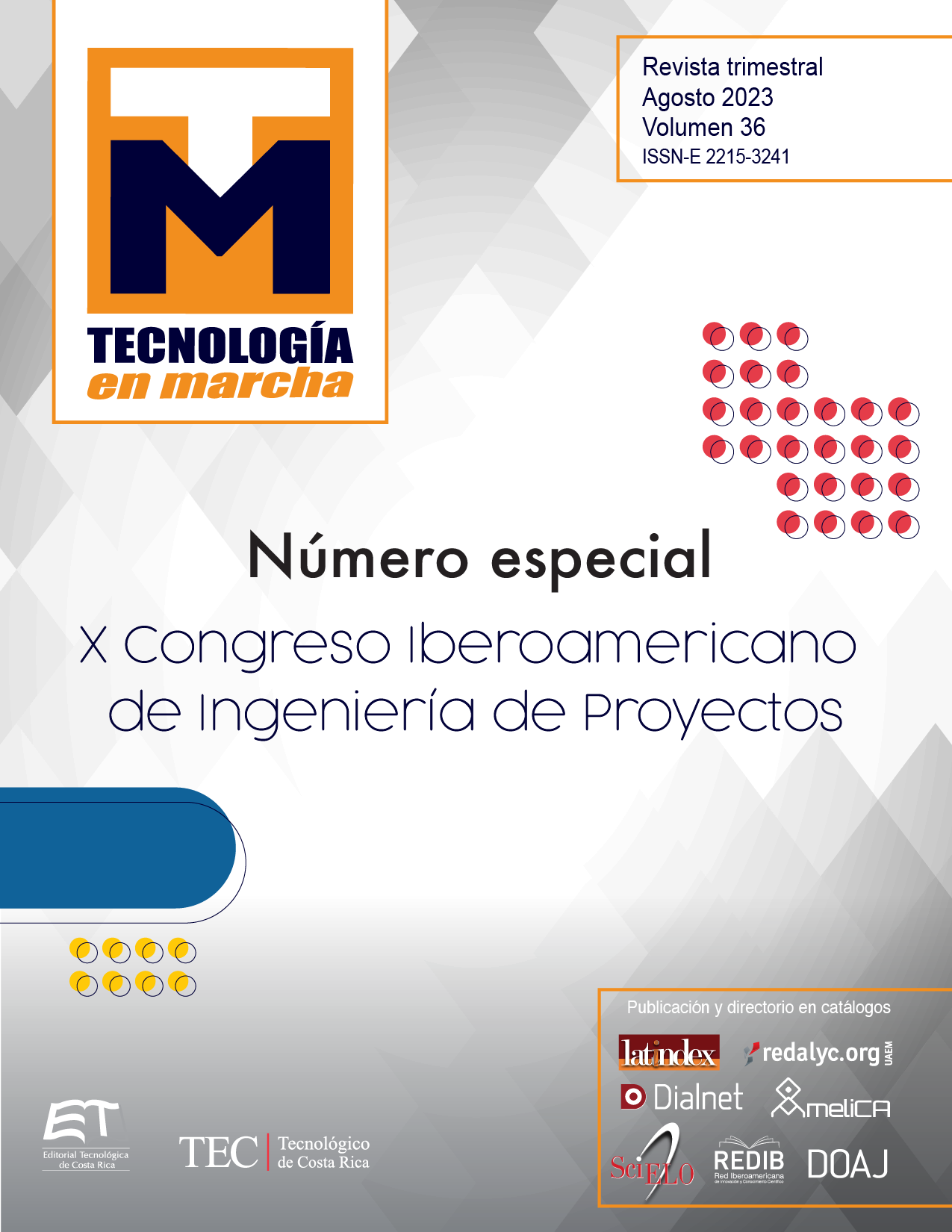Metodología de gestión de riesgos para el desarrollo de productos tecnológicos en una empresa multinacional
Contenido principal del artículo
Resumen
Una empresa multinacional busca soluciones innovadoras para satisfacer las necesidades del mercado y ofrecer a los clientes productos competitivos. Esto requiere una gestión de proyectos eficiente y orientada a objetivos, en la que se aplique un sistema de gestión de la calidad y de riesgos adaptado a la empresa. Muchos de los proyectos tienen un alto grado de complejidad con requisitos específicos para cada uno. En este trabajo se desarrolla una metodología para la gestión de riesgos teniendo en cuenta las características de la empresa y sus productos. El modelo de gestión de riesgos consta de cuatro etapas: Identificación, Evaluación, Plan Estratégico y, Monitoreo y control de riesgos. Esta secuencia cíclica permite considerar todos los posibles riesgos, asignarles prioridades y realizar un seguimiento periódico no sólo de ellos sino también de sus medidas de prevención y acción. La metodología elaborada para la gestión de riesgos representa un valor apreciado para el desarrollo de productos tecnológicos de la empresa. Este proceso sistemático e iterativo ha identificado riesgos, pudiendo definir un plan estratégico y controlar riesgos en los proyectos que no se habían tenido en cuenta anteriormente. Sin ese enfoque sistemático, la probabilidad de que los riesgos no se identifiquen o se identifiquen de forma tardía es alta. Finalmente, si se compara la situación de la empresa con la aplicación de la gestión de riesgos desarrollada, las ganancias aumentan en aproximadamente un 6%, lo cual equivale aproximadamente a 3 millones de euros.
Detalles del artículo

Esta obra está bajo una licencia internacional Creative Commons Atribución-NoComercial-SinDerivadas 4.0.
Los autores conservan los derechos de autor y ceden a la revista el derecho de la primera publicación y pueda editarlo, reproducirlo, distribuirlo, exhibirlo y comunicarlo en el país y en el extranjero mediante medios impresos y electrónicos. Asimismo, asumen el compromiso sobre cualquier litigio o reclamación relacionada con derechos de propiedad intelectual, exonerando de responsabilidad a la Editorial Tecnológica de Costa Rica. Además, se establece que los autores pueden realizar otros acuerdos contractuales independientes y adicionales para la distribución no exclusiva de la versión del artículo publicado en esta revista (p. ej., incluirlo en un repositorio institucional o publicarlo en un libro) siempre que indiquen claramente que el trabajo se publicó por primera vez en esta revista.
Citas
W. Hopfenbeck, Allgemeine Betriebswirtschafts- und Managementlehre: Das Unternehmen im Spannungsfeld zwischen ökonomischen, sozialen und ökologischen Interessen. Germany: Die Wirtschaft Landsberg/Lech, 2000.
R. König, Management betrieblicher Risiken bei produzierenden Unternehmen, Doktorarbeit, Germany: Aachen, techn. Hochsch, 2008.
T. Lührig, Risikomanagement in der Produktentwicklung der deutschen Automobilindustrie, Technische Universität Darmstadt, Germany: Shaker Verlag Aachen, 2005.
G. Purdy, “ISO 31000:2009 - Setting a New Standard for Risk Management”, Risk Analysis, vol. 30, n° 6, pp. 881-886, 2010.
S. Elstner, Eine Methode zur Bewertung von Anlaufrisiken in der Produktentwicklung für die Flugzeugindustrie. Neubrandenburg, Germany: Tutech Innovation GMBH, 2017.
Project Management Institute, A guide to the project management body of knowledge (PMBOK guide), USA: PMI, 2017.
R. Sautu, P. Boniolo, P. Dalley y R. Elbert, Manual de Metodología. Construcción del Marco Teórico, Formulación de los Objetivos y Elección de la Metodologia, Argentina: CLACSO, 2005.
G. Rossetti, D. Ferreira y L. Cavalero, “Diagnostic and Proposal of Improvement for the Innovation Management in a Technological Company”, Iberoamerican Journal of Project Management, vol. 8, n° 2, pp. 33-52, 2017.
N. Sapag Chain, R. Sapag Chain y J. Sapag, Preparación y evaluación de proyectos, México: McGraw Hill, 2014.

